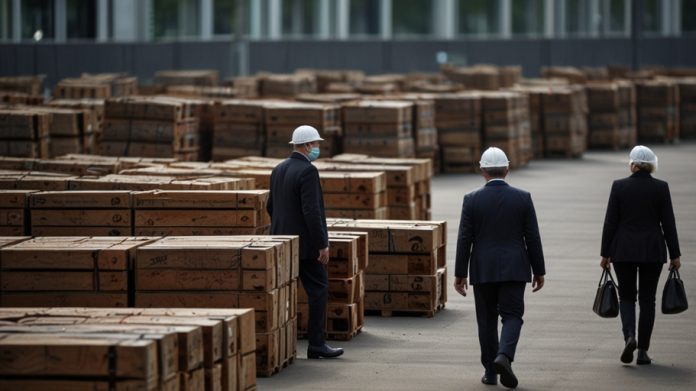Based on the findings of Ifo Institute, in the month of March 2025, Germany’s business confidence showed a positive step in the right direction, demonstrating the hope that exists among companies for a quick recovery of the economy.
The Ifo Institute’s business climate index climbed to 86.7 with a rise of 85.3 in February, which stayed in line with analysts’ predictions. This climb in the figures indicates that companies are much happier with the way they are now and are also optimistic about the prospects for the days to come.
This change from bad to good is due to several factors where before the fourth quarter of the year the country’s GDP went down by 0.2%. Nevertheless, the latest forecasts are for a 0.2% growth in the first quarter of 2025, even though it will be a slow but hopeful one. The approval of the significant financial outlay planned for the period of economic and military development is also one of the main reasons.
In any case, economic recovery is fragile and is only permanent because of the structural reforms that are required to facilitate perpetual development. The assembly industry specifically has achieved the polarization of production to the highest levels in the last ten months, thus gaining in terms of positive sentiment. Nevertheless, businesses still experience constraints such as supply chain disruptions and lack of labor that could lead to a slower pace of recovery.
This situation has generated demands from German businesses on their own government to clear the bureaucratic mess that hinders operations. Firms have registered objections to the complexity of the laws, the number of inspections, and the amount of reports which they argue affect the effectiveness and competitiveness of the businesses. Making these processes more efficient is needed the most to ensure the creation of a more business-friendly environment.
On the other hand, greater business optimism has also been prescribed as a result of the military budget approval. The country’s primary goal of bolstering defense capabilities is anticipated to prop up maneuvered economy throughout these various areas, especially sectors of manufacturing and technology which should witness an increase in demand and thus investment in the upcoming future. The action is part of the wider European efforts to reinforce defense and security following the complete shift of the geopolitical dynamics.
Nevertheless, the prospect of a final debt relief deal is at present uncertain. The deliberations among the coalition partners have been quite challenging as the different factions put forward opposing perspectives on fiscal policies and priorities of spending. Striking a consensus is crucial so that the suggested financial measures can effectively propel economic growth without causing debt buildup.
Moreover, the labor market has developed as well since the major airports such as Munich and Hamburg are facing strikes that come as a result of wage disagreements. Hence the labor actions are just a reminder that the wages’ disagreements always exist and that the employers use the situation for their convenience. These are the issues that should be solved in the first place in order to get on with the operational process without causing any disruption that could ruin the economy.
In a similar vein, the financial sector is not behind the line as the main DAX stock index in Germany has exhibited great strength when considering investors’ attitudes toward economic prospects. Nevertheless, market fluctuations are still around, while domestic factors, trade policies, international vesting, and the global economic outlook are the major issues impacting the market.
The answer to the question of how the European Space Agency’s new commercial launch strategy will have an impact on German companies in the aerospace industry depends on the success of the strategy. In the meantime, Europe’s aspiration to be the biggest player in the space sector may be hampered by the lack of resources.
German companies are the ones in the lead line but of course, there is some element of risk in the overall support level from the authorities, and they will play a decisive part if proper backing and investments are secured.
Thus Germany is confronted with a multitude of opportunities and challenges resulting, the realignment of its structures, flexible governance, and the smart movement of investments foster economic progress. Government-corporate partnership should ultimately establish the direction of German economic recovery through its perpetual growth.



 Bitcoin
Bitcoin  Ethereum
Ethereum  Tether
Tether  XRP
XRP  Solana
Solana  USDC
USDC  Cardano
Cardano  TRON
TRON  Lido Staked Ether
Lido Staked Ether  Toncoin
Toncoin  Avalanche
Avalanche